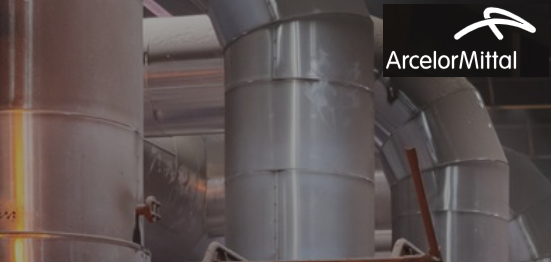
(Photo : arcelormittal.com)
ArcelorMittal South Africa
ArcelorMittal South Africa Ltd, a leading steel producer, announced on Monday that it is shutting down its loss-making long steel business in the country. This move is likely to affect about 3,500 direct and indirect jobs.
The closure of the operations has been on the anvil since November amid prolonged weak economic conditions, logistics and energy challenges, and a flood of cheap imports from China. The firm's shares fell as much as 15 per cent in early trading, after the announcement.
"The company is at a point where further delays would threaten its overall sustainability. This decision, though difficult, is necessary to ensure the long-term viability of ArcelorMittal South Africa," the company said in a statement.
The Board and Management of ArcelorMittal South Africa have a fiduciary and legal duty to ensure that the overall business remains sustainable in the longer term. While the company appreciated the support from the Government and other stakeholders, and having made some progress with the identified initiatives, these have not been adequate, it said.
The Impact of the Shutdown
ArcelorMittal South Africa cited persistent high logistics and energy costs, combined with insufficient policy interventions, relating to the substantial subsidisation of scrap-based steelmaking operations to the detriment of the Newcastle Works, which beneficiates largely South African-sourced raw materials, has left the Longs Business unsustainable.
Despite all efforts, unfortunately, the package of initiatives sought has not materialised to a level that will change the fundamentals of the structural problems the company has been experiencing in the Longs Business.
By year-end, the company faced no alternative but to proceed with the winding down of the Longs Business, prioritising a well-considered and responsible process to minimise the impact on employees and stakeholders, while ensuring the sustainability of its remaining operations.
Furthermore, market conditions worsened into Q4 2024, with global steel demand and prices under severe pressure which detrimentally affected the financial performance of the entire ArcelorMittal South Africa business.
The Broader Economic Impact
The South African steel industry is facing its greatest sustained challenge since the 2008 financial crisis. Deteriorating global and local steel markets, high expenses and surging low-cost imports - particularly from China - have damaged the business.
The news comes as a blow to the business-friendly coalition government's desire to revive industry in a nation whose economy has expanded at an average of less than 1% annually over the past decade, outpaced by population growth.
The company expects a headline loss per share of between 4.06 rand ($0.2164) and 4.41 rand for the year ended Dec. 31, from a 1.70 rand loss one year earlier. The impact of the pandemic on the UK high street was drastic. During the first two weeks of lockdown, retail sales slumped by over a quarter.
Since COVID, we've seen a cost-of-living crisis, spiralling inflation, and exorbitant energy, fuel, rent and material costs that have sent countless businesses into administration or even liquidation. While small businesses have had a torrid time, major UK brands haven't been spared, leaving an unrecognisable high street.
* This is a contributed article and this content does not necessarily represent the views of btin.co.in









